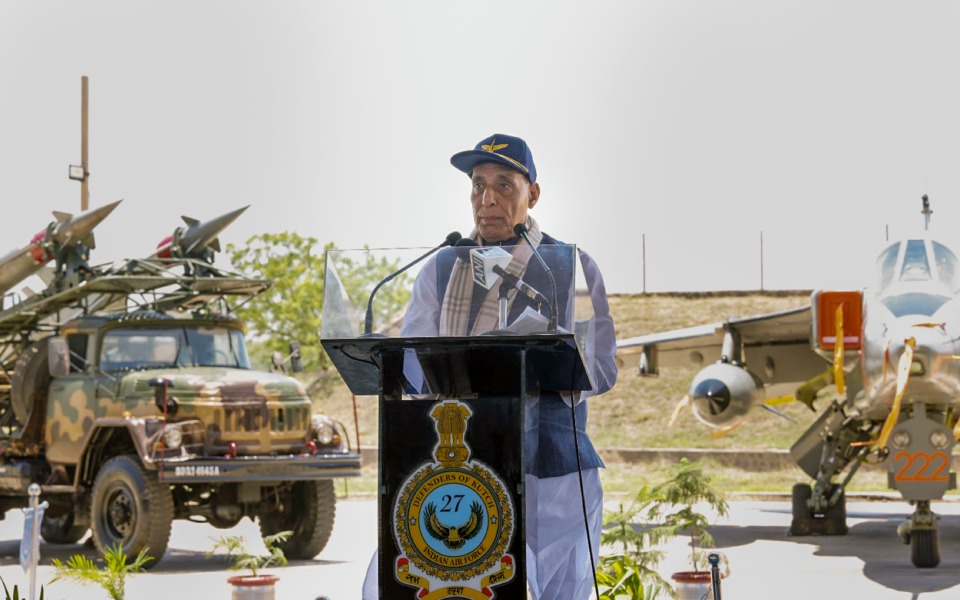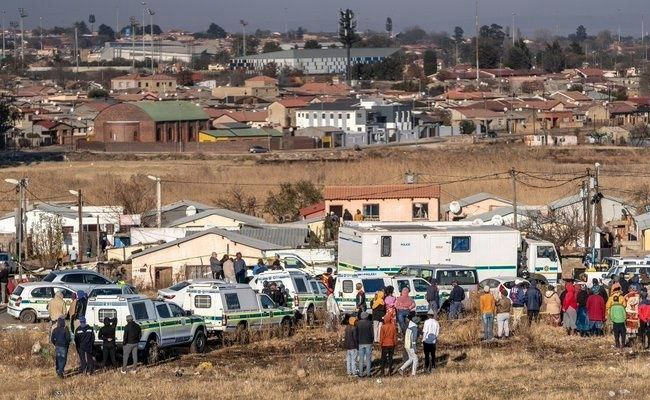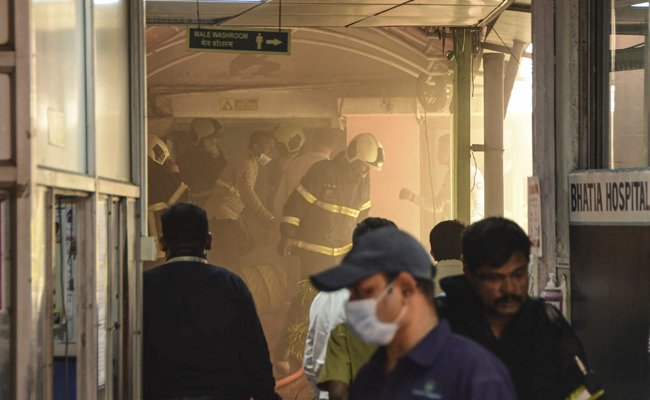Bhuj (Guj), May 16 (PTI): India on Friday pressed the International Monetary Fund (IMF) to reconsider its USD one billion assistance to Pakistan, saying Islamabad could use a large part of it to fund the terrorist infrastructure.
In an address to air warriors at Gujarat's Bhuj Air Force station, Singh confirmed use of the 'BrahMos' supersonic missiles in the Operation Sindoor and said the weapon showed Pakistan the "light of day in the darkness of night".
Sending a clear and firm message to Islamabad, the defence minister made it clear that the operation is not yet over as the current ceasefire means that India has kept Pakistan on "probation" on the basis of its behaviour.
"If the behaviour improves, it is fine; but if there is any disturbance, harshest punishment will be given," he said.
"Our actions were just a trailer, we will show the full picture, if need be. Attacking and eliminating terrorism is the new normal of new India," he said.
Under Operation Sindoor, India on early May 7 destroyed nine terror infrastructures in Pakistan and Pakistan-Occupied-Kashmir (PoK) in retaliation to the Pahalgam terror attack.
All subsequent retaliations by Pakistan were carried out under the operation. The two sides reached an understanding on cessation of hostilities on May 10 after four days of confrontations.
In his remarks, Singh said Pakistan has again started trying to rebuild the terror infrastructure destroyed by India last week and that Islamabad will "spend the collected from the common citizens of Pakistan to pay around Rs 14 crore to Masood Azhar, the head of the terror outfit Jaish-e-Mohammad" and a UN designated terrorist.
The Bhuj air force base was one of the military installations that Pakistan targeted during the four-day confrontation between the two militaries.
Singh cautioned against providing financial support to Pakistan saying any such assistance would be no less than terror funding.
In its board meeting in Washington on May 9, the IMF cleared a USD one billion tranche for Pakistan as part of its USD 7-billion funding programme for the country.
"The Pakistan government has announced financial assistance to rebuild the terror infrastructure of Lashkar-e-Taiba and Jaish-e-Mohammed located in Muridke and Bahawalpur," Singh said.
"Certainly, a large part of IMF's USD one billion assistance will be used to fund the terror infrastructure. Will this not be considered indirect funding by IMF, an international organisation?"
"Any financial assistance to Pakistan is no less than terror funding. The funds India gives to IMF should not be used, directly or indirectly, to create terror infrastructure in Pakistan or any other country," he said.
The defence minister said India would like the IMF to reconsider USD one billion support to Pakistan and refrain from giving any kind of assistance in future.
He commended the "effective" role played by the Indian Air Force (IAF) in Operation Sindoor which he said is being appreciated by the world.
Lauding the air warriors for eliminating the terror camps in Pakistan and PoK in just 23 minutes, he said "when missiles were dropped inside the enemy territory, the world heard the echoes of India's valour and might."
He added that IAF spearheaded this campaign against terrorism, and during the operation, it not only dominated the enemy, but decimated them.
Singh highlighted that India's fighter jets are capable of striking every corner of Pakistan without crossing the border. "The world has witnessed how IAF destroyed terror camps and later Pakistan's airbases. The IAF gave the proof that India's war policy and technology have changed."
"They conveyed the message of New India that we are not just dependent on weapons and platforms imported from aboard, but Made in India equipment have become a part of our military power. The weapons manufactured in India are also impenetrable," he said.
Singh added that Pakistan has itself accepted the power of the 'BrahMos' missile. This Made in India missile showed Pakistan the light of day in the darkness of night, he said, noting India's air defence system, including assets like Akash missile systems have played a tremendous role.
On his interaction with the brave Indian Army soldiers in Srinagar on Thursday and the air warriors and soldiers in Bhuj on Friday, Singh said he is, once again, convinced that India's borders are completely safe.
"I've witnessed the highest level of enthusiasm and patriotism among the soldiers on both the fronts. What our forces did during Operation Sindoor has filled the country with pride," he said.
"The effective role played by the Indian Air Force in Operation Sindoor is being appreciated not only in this country but also in other countries." "In this operation, you have not only dominated the enemy but have also succeeded in decimating them," he said.
Let the Truth be known. If you read VB and like VB, please be a VB Supporter and Help us deliver the Truth to one and all.
Johannesburg (AP): A 32-year-old suspect has been arrested in connection with a mass shooting which claimed the lives of 12 people including three children at an unlicensed pub earlier this month, South African police said on Monday.
The man is suspected of being one of the three people who opened fire on patrons in a pub at Saulsville township, west of South Africa's capital Pretoria, killing 12 people including three children aged 3, 12 and 16.
At least 13 people were also injured during the attack, whose motive remains unknown.
According to the police, the suspect was arrested on Sunday while traveling to Botlokwa in Limpopo province, more than 340 km from where the mass shooting took place on Dec 6.
An unlicensed firearm believed to have been used during the attack was recovered from the suspect's vehicle.
“The 32-year-old suspect was intercepted by Limpopo Tracking Team on the R101 Road in Westenburg precinct. During the arrest, the team recovered an unlicensed firearm, a hand gun, believed to have been used in the commission of the multiple murders. The firearm will be taken to the Forensic Science Laboratory for ballistic analysis,” police said in statement.
The suspect was arrested on the same day that another mass shooting at a pub took place in the Bekkersdal township, west of Johannesburg, in which nine people were killed and 10 wounded when unknown gunmen opened fire on patrons.
Police have since launched a search for the suspects.
South Africa has one of the highest homicide rates in the world and recorded more than 26,000 homicides in 2024 — an average of more than 70 a day. Firearms are by far the leading cause of death in homicides.
The country of 62 million people has relatively strict gun ownership laws, but many killings are committed with illegal guns, according to authorities.
According to police, mass shootings at unlicensed bars are becoming a serious problem. Police shut down more than 11,000 illegal taverns between April and September this year and arrested more than 18,000 people for involvement in illegal liquor sales.





